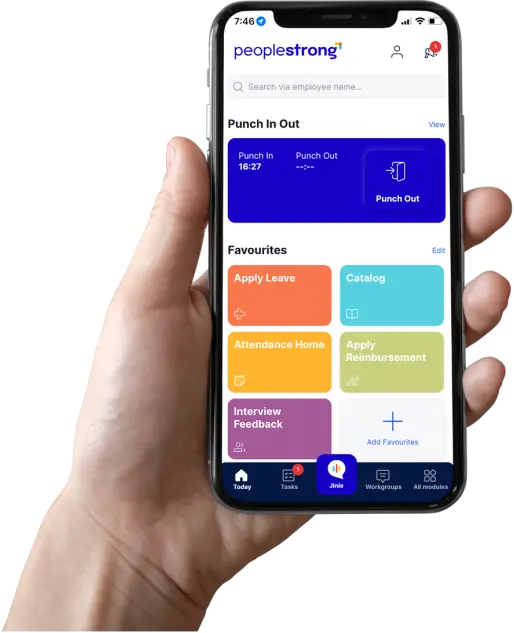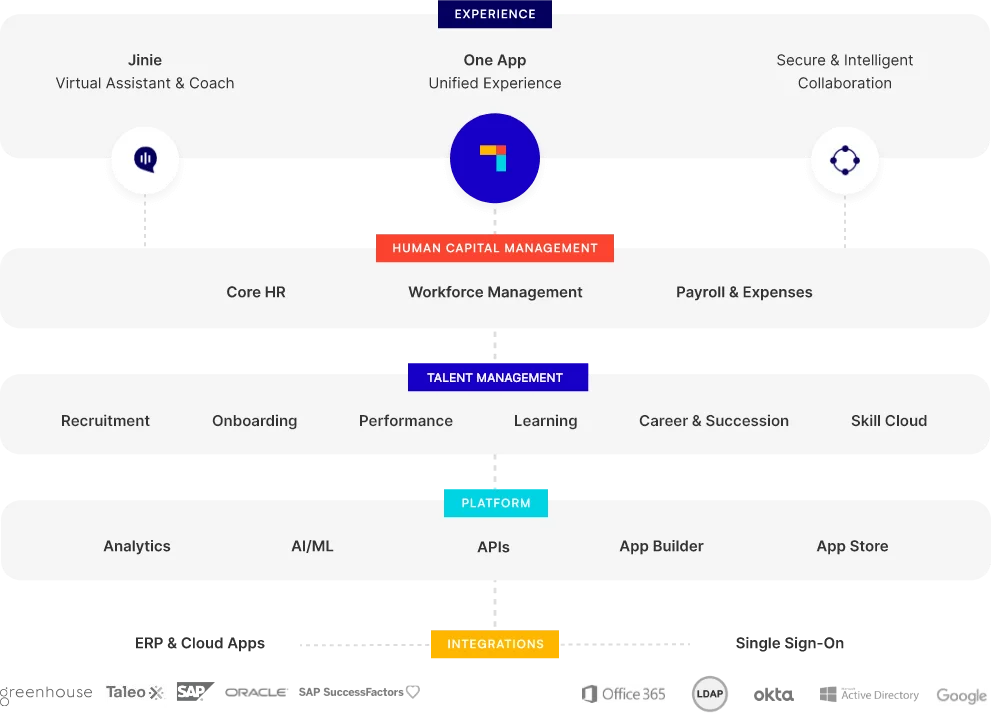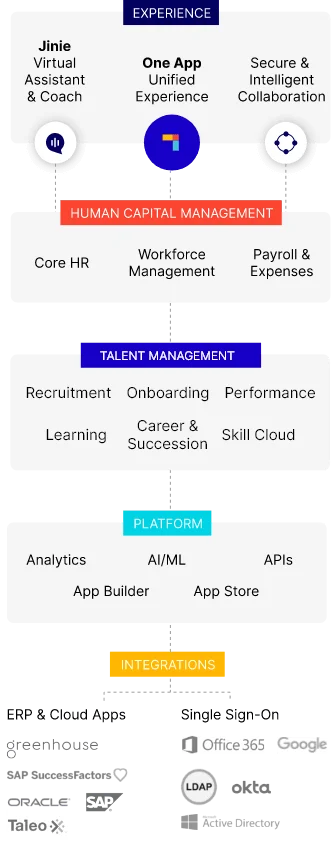Sourcing the right candidates for a job is a talent that not all recruiters have. The success or failure of any company’s recruitment process depends largely on the talent pool recruiters tap into during the initial steps.
That’s why you need the right recruitment sourcing strategies to attract the best candidates for any job opening within your company.
This recruitment sourcing guide for the Middle East is exactly what you need to optimize your sourcing process. Check it out.
Suggested Read: Recruitment Process Guide for HRs in Middle East
What is Sourcing in Recruitment?
Sourcing is the process of finding the right candidates for a job using various platforms, such as job boards and social media.
The recruitment process in the Middle East comprises these broad steps—sourcing, candidate screening, interview and selection, and job offer. Sourcing starts the process and sets the tone for the rest.
If you find relevant and skilled candidates during the sourcing process, you will likely find the top talent for a job.
8 Effective Recruitment Sourcing Strategies for Companies in the Middle East
Here are some sourcing tactics you should include in your overall recruitment strategy plan.
1. Build a Strong Employer Brand
The Middle East is facing a skill shortage of people with specialized skills, according to a survey by PwC.
Amid a talent shortage, one of the best strategies to find top talent is building a strong, positive employer brand.
Here are some tips to do that:
- Showcase your company culture and values across platforms where you have an active presence.
- Share employee testimonials, photos from company events, and other content that gives people a glimpse into what it’s like working for your company.
- Clearly mention the employee benefits and perks you offer on your website and job descriptions.
- Create an engaging and informative careers page on your website that mentions all the benefits of working with your company.
By building a positive employer brand, you will organically attract top talent for current and future job openings within your organization.
2. Leverage Your Recruitment Database
Build a database of potential candidates for various roles and update it regularly. Record candidates who applied for jobs in the past but didn’t get selected, employee referral candidates, and contacts you made via other channels.
Whenever a job opening comes up in your company, you can start your sourcing process by checking the database. This will save you a lot of time and effort, simplifying recruitment sourcing for you and streamlining your recruitment process.
3. Invest in the Right Recruitment Technology
One of the most important hiring trends of recent years is the increasing use of recruitment technology by employers in the Middle East.
Using a good recruitment software solution like PeopleStrong can help you easily source candidates from multiple sources. With features like job board integration and candidate matching, it can simplify your entire recruitment sourcing process.
PeopleStrong integrates with over 350 job boards and sourcing channels to find the best candidates for a role. You can easily post jobs on multiple platforms and track applications from a single dashboard.

4. Outsource the Recruitment Sourcing Process
There are numerous recruitment agencies that offer candidate-sourcing services in the Middle East. If you don’t have a dedicated in-house team, you can leverage their services to simplify things for yourself.
These agencies specialize in the field and have large databases of potential candidates. So, they can help you source candidates quickly for urgent hiring needs.
Here’s a simple template explaining the process of sourcing candidates through a vendor.

5. Tap into Your Employees’ Networks
Employee referrals are one of the most cost-effective recruitment sourcing strategies. It helps you save time and find candidates with relevant experience without much effort.
So, leverage your employees’ networks and ask them to find the best candidates for a job. Incentivize them by offering a referral reward for each candidate you hire based on a referral.
You might think this is expensive, but it’s not. The time, effort, and money you save by hiring through a referral, instead of a long hiring process, is worth it.
6. Utlize Job Posting Sites
Posting job listings on job boards and sites remains one of the evergreen recruitment sourcing strategies in the Middle East and globally.
After all, it’s a great way to reach a wide talent pool and source candidates in bulk.
Some popular job sites in the Middle East are:
- Bayt
- GulfTalent
- Monster Gulf
- Naukrigulf
- Indeed
Use a mix of these channels for sourcing candidates for your recruitment process.
Make sure you create and share detailed job descriptions that showcase the benefits of joining your organization.
You can use recruitment software like PeopleStrong to create and post jobs across various platforms.

PeopleStrong also offers generative AI capabilities to help you quickly create detailed job descriptions, further improving your recruitment process.
7. Source Candidates From Social Media
Social sourcing is one of the newer recruitment sourcing strategies and is still not mainstream. Still, many recruiters in the Middle East leverage social media for both candidate sourcing and screening purposes.
This goes beyond platforms like LinkedIn, which are professional networks that have long been used for recruitment screening.
Companies actively engage with potential candidates on social media and use it to source talent for open positions.
Here are some ways to use social media for sourcing candidates for recruitment:
- Maintain a detailed company profile and share job postings on social media, just like you do on job boards.
- Use targeted advertising to show job ads to potential candidates on any platform.
- Run talent hackathons and contests to find top talent for specific roles, especially those that require creative or technical skills.
- Share social media content that helps you build a strong employer brand that organically attracts top talent.
- Engage in conversations and get the contacts of potential candidates for senior roles.
8. Attend Job Fairs and Networking Events
Last on our list of recruitment sourcing strategies for Middle East recruiters is attending job fairs and events.
Online recruitment sourcing channels can only get you so far. Sometimes, you need to look at offline channels to find the perfect candidates for a job. This is especially useful when hiring for specialized or senior positions, for which you need to be thorough and find just the right candidates.
Industry-specific networking events are perfect for making contacts and headhunting candidates to fill senior positions within your company.
Job fairs, on the other hand, can be used to build your talent pipelines for various roles, including current and future job openings. Even if you don’t have current openings, you can use these to fill your talent pipelines with contacts of top candidates for various roles.
Conclusion
This Middle East recruitment guide covers the best recruitment sourcing strategies you can use to fill open job positions within your company.
Use a mix of these recruitment strategies and multiple platforms to ensure you reach a wide talent pool and find the best candidates for a job.
Lastly, make sure you build a good employer brand to attract top talent. All the best!
FAQs
What are the best sourcing tools for recruiters?
Using a recruitment software solution like PeopleStrong is the best option for recruiters to optimize their sourcing process. It integrates with 350+ job boards and sourcing platforms to help recruiters cast a wide net and reach a large talent pool.
The best part is that you can view all the candidates for a role from a unified dashboard, regardless of where a candidate is sourced.
So, if you want to streamline your recruitment process in the Middle East, use a good recruitment software solution.
What are some best practices for candidate sourcing in the Middle East?
Here are some recruitment sourcing best practices you should follow:
- Utilize multiple platforms instead of relying only on one to find the best talent for your company.
- Write job descriptions that highlight the benefits of joining your organization for potential employees.
- Ensure that your sourcing process is transparent and unbiased and that your team does not discriminate against any demographic.
What are some best practices for candidate sourcing in the Middle East?
A talent pool represents all the potential candidates a company can reach to fill specific job positions. You can reach a vast talent pool by sourcing candidates from multiple platforms.
A talent pipeline, on the other hand, is more limited and specific to a company. It’s a database of candidates that a company maintains based on its past interactions. So, a company’s past employees, candidates who applied for a job and didn’t get selected, and other contacts will be a part of the talent pipeline.
However, many potential candidates may not be on the company’s contact list but are still suitable for a job. Those are part of the larger talent pool and not the company’s talent pipeline.











